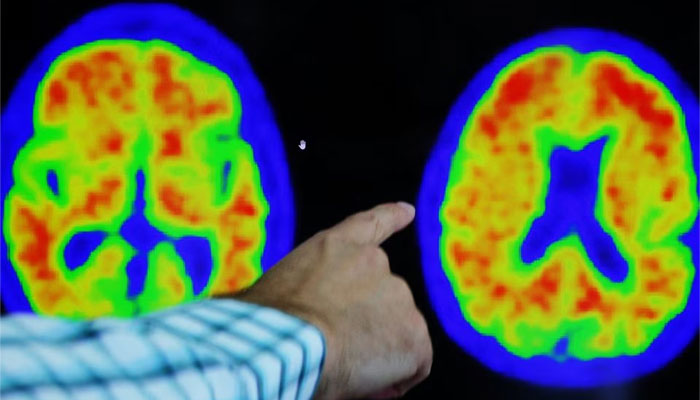Genetic predisposition towards high cholesterol, hypertension may raise Alzheimer's risk
More than 6m people have Alzheimer’s which is likely to increase by 2050, says Alzheimer’s Association
May 18, 2023

A new study Wednesday may have found a link between cholesterol and Alzheimer’s suggesting that people having genes causing high levels of high-density lipoprotein (HDL) or "good cholesterol" has a comparatively higher tendency of developing this disease.
Experts have not been able to find the major causes of this degenerative brain disease however, there are medicines that can slow down its development.
Experts and researchers have been looking to seek a better understanding of Alzheimer’s so that they can find ways to prevent it.
More than 6 million people have Alzheimer’s which is likely to increase by 2050, according to Alzheimer’s Association.
People from different racial groups such as Africans and Hispanics are disproportionately affected by the disease.
The researchers of this study, published Wednesday in the journal JAMA Network Open, were trying to understand modifiable risk factors that might keep someone from developing Alzheimer’s. They also hoped to help guide drug development.
The experts were trying to grasp the modifiable risk factors which could help prevent the development of disease in patients.

The data was analysed from the European Alzheimer & Dementia Biobank, a collection of DNA records from those suffering and those not having Alzheimer’s in 11 countries in Europe.
According to the Biobank: “Genetic factors account for up to 70% of attributable risk in common forms of Alzheimer’s.”
The researchers in their study published in the journal JAMA Network Open found that people who had particular genes that led to “good” cholesterol, had a slightly higher chance of developing Alzheimer’s.
They also revealed a similar risk for people with the genes responsible for higher systolic blood pressure.
The researchers said: "It’s important to note that while this is a large study, it cannot be generalized to the rest of the world because most of the participants were of European descent, and others may have different genetic factors for Alzheimer’s. The study also does not show that genes predetermine people for Alzheimer’s."
"More research needs to be done," the scientists said.
As HDL is good for health, it may disturb the balance in the brain which could play a role in dementia.
Dr Sudha Seshadri, director of UT Health San Antonio’s Glenn Biggs Institute for Alzheimer's and Neurodegenerative Diseases, said "people should keep in mind that this is just one study."
"Overall, I would say it does offer some support for the fact that lower blood pressure may be good. And the fact that higher HDL, it’s raising some concern about dementia, but there are many explanations for this," said Seshadri, who was not involved in the study.
"Studies like this are promising building blocks to understand how the disease works," said Dr Rebecca M Edelmayer, senior director of scientific engagement for the Alzheimer's Association.
"As noted in the paper, we believe a large proportion of global dementia cases could potentially be prevented or delayed by targeting modifiable risk factors and also understanding how we sort of tease out what might be genetic and what might be related to modifiable risk," said Edelmayer, who was not involved in the study.
"It really is what’s good for your heart is going to be good for your brain," she said.









